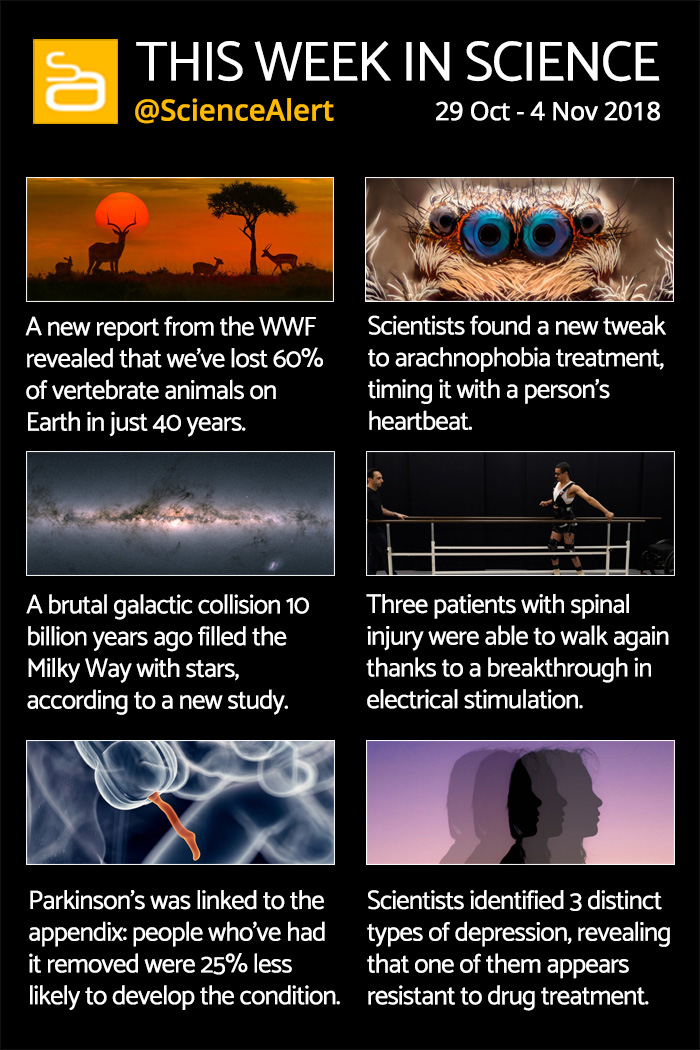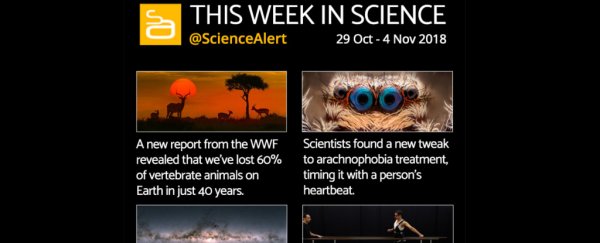You might be pretty distracted by the news of the world this week. You might not want to read any news at all, although we always think that science is a safe exception.
Either way, since you're here already, we've prepared an easy and shareable wrap of last week's discoveries in science.
If you'd like to read more about each one, links to the stories are below the picture.
 (ScienceAlert)
(ScienceAlert)
We've Lost 60% of Vertebrate Wildlife on Earth in Just The Last 40 Years, Says Report
The World Wide Fund for Nature (WWF) released its latest summary of the state of Earth's biosphere this week. Amongst the findings, we saw a dramatic decrease in vertebrate animal populations between 1970 and 2014, along with increased plastic waste and deforestation. The organisation says we need to act, and proposes a set of recommendations.
Scientists Have a Secret Weapon to Defeat Arachnophobia, And It's Hidden Inside You
An experimental new treatment for arachnophobia has paired good old exposure therapy with people's own heartbeats, and there's good reason for it - our sensory awareness of the internal state of the body appears to be linked to our fear processing.
A Brutal Galactic Collision Filled Our Milky Way With Stars, Astronomers Discover
Galaxies smash up with other ones regularly - and now astronomers have revealed that one such collision in our own past resulted in a mysterious feature called the 'thick disc', which is full of stars that clearly weren't born in the Milky Way itself.
Electrical Stimulation Breakthrough Helps 3 Spinal Injury Patients Walk Again
A new type of medical technique has helped three men to walk again, delivering never-before-seen improvements in patients with spinal cord injury. The technique uses precisely targeted stimulation of the spinal cord, and it sounds absolutely amazing.
Your Appendix Might Have a "Use" After All, as The Starting Place of Parkinson's Disease
You know that nub of tissue attached to your large intestine, and largely thought of as useless? We already know that the appendix plays a role in our immune system; now, researchers have also discovered there seems to be a link with the origins of Parkinson's disease.
Scientists Just Identified 3 Distinct Types of Depression, And 1 Appears to Be Drug-Resistant
A new study has got us closer to distinguishing between types of depression, something that's been speculated about for a while. Scientists have found three sub-types labelled D1, D2, and D3, and there are some crucial differences between them.
Sign up for our daily newsletter to stay up to date with all the most fascinating and inspiring science news as it happens.
